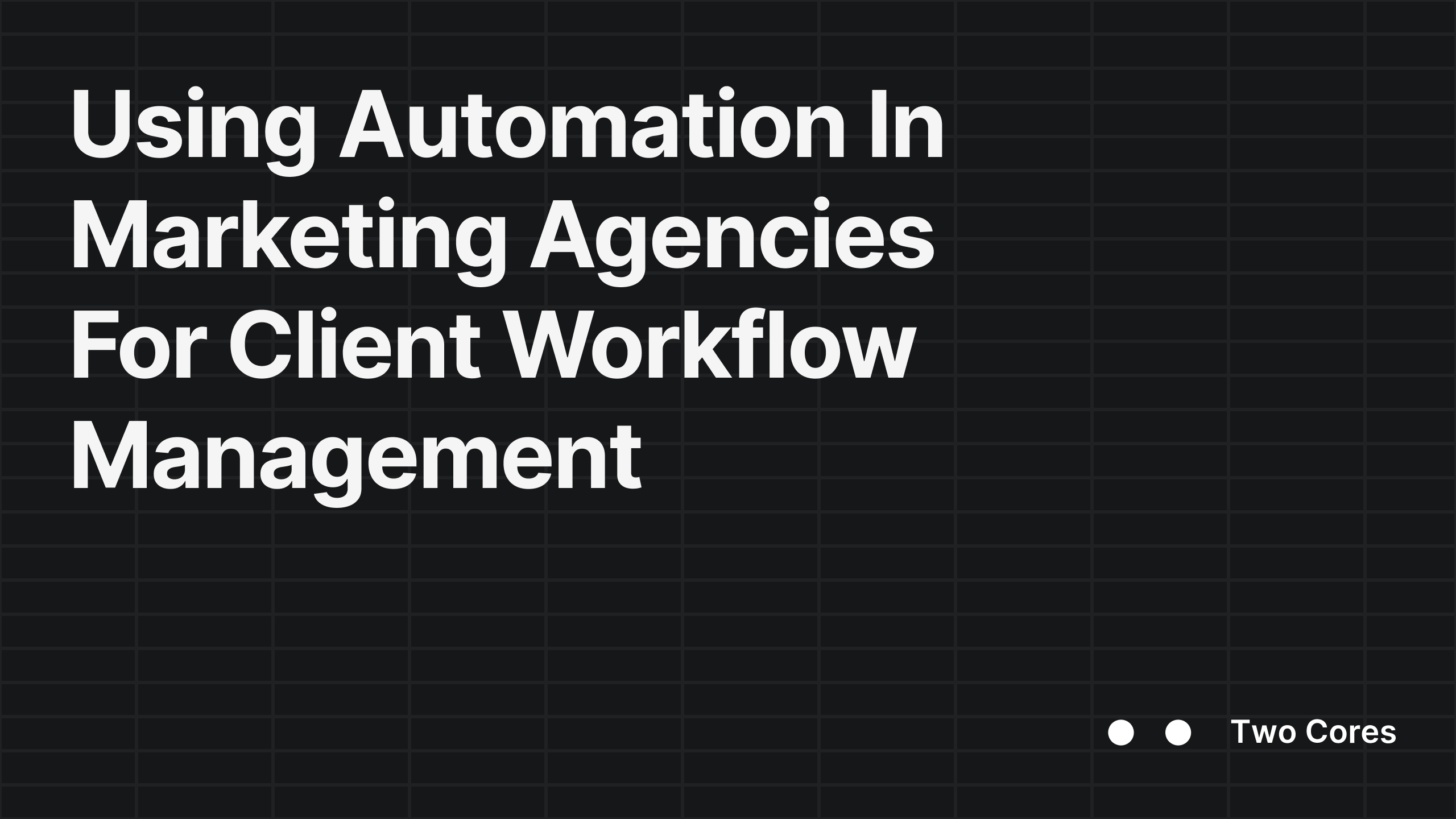
Using automation in marketing agencies can transform how client workflows are managed. But what does this mean for your business?
Automation lets agencies handle tasks without manual effort. Think of it as using technology to complete repetitive work while your team focuses on creative and strategic projects.
Marketing agencies juggle multiple clients, campaigns, and deadlines daily. Without automation, teams waste valuable time on routine tasks rather than growing client relationships.
According to research, workers waste about 25% of their week on manual, repetitive tasks that could be automated. For marketing agencies, this translates to significant time and money losses.
First impressions matter. Automation tools can create smooth client onboarding experiences by:
This approach ensures consistent experiences for every new client while reducing administrative work.
Managing marketing projects across multiple clients becomes easier with automation. Tools like Monday.com and Asana help teams:
These platforms connect with other software, creating seamless workflows that reduce errors and save time.
Social media requires consistent posting and monitoring. Automation tools can:
This allows agencies to manage more social accounts without adding staff.
Creating client reports manually takes hours each month. Automated reporting:
This gives agencies more time to analyze results and make recommendations rather than compiling numbers.
Agencies that implement automation see measurable improvements:
According to EmailMonday, 80% of marketing automation users see an increase in leads, and 77% see an increase in conversions.
If you're new to automation, start small:
Remember that automation works best when it supports your team, not replaces them. The goal is to free up human creativity and strategic thinking.
Implementing automation isn't always smooth sailing. Agencies often face these challenges:
The key is taking a thoughtful approach rather than rushing to automate everything at once.
As AI and automation technologies advance, marketing agencies that embrace these tools will have a competitive advantage. The most successful agencies will find the right balance between automated efficiency and human creativity.
By starting with clear goals and choosing the right tools, your agency can transform client workflow management through automation – saving time, reducing errors, and delivering better results for your clients.